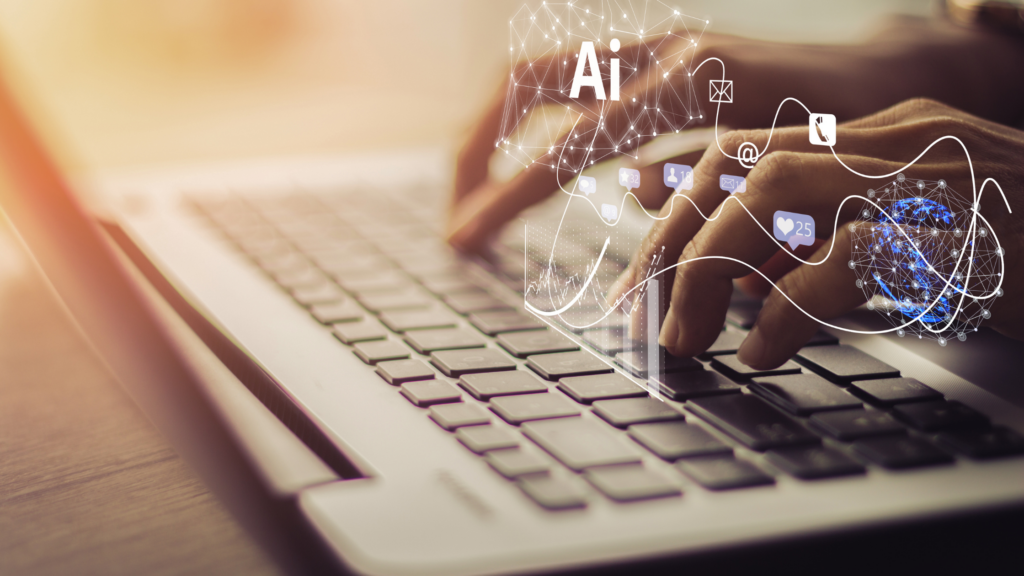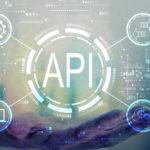How AI Will Impact the Future of Digital Marketing
Advancements in technology have heralded changes in digital marketing during the last decade. Many of these technological breakthroughs are transforming the way marketing connects with consumers. One exciting innovation that is having a major impact on digital marketing is Artificial Intelligence (AI).
You may be surprised to learn that AI is not new. It has been around for decades. According to Britannica, the earliest successful AI program was written in 1951 by Christopher Strachey of the Programming Research Group at the University of Oxford.
Strachey’s checkers program ran on the Ferranti Mark I computer at the University of Manchester, England. By the summer of 1952, this program could play a complete game at a reasonable speed. Nevertheless, after this accomplishment, interest in AI dwindled.
Despite decades of low interest, resulting in a lack of funding, AI is finally having its moment. It is transforming the approach businesses take in their digital marketing strategies. AI-powered marketing is projected to contribute to 45% of the global economy by 2032.
FineView Marketing consistently remains at the forefront of the industry by embracing trends that keep its self storage clients ahead of the competition. They know that AI is key to improving customer engagement and driving sales.

Preparing for the Future of Marketing With AI
Investing in AI Technology
Investing in AI technology refers to using financial resources to purchase, develop, or implement AI solutions. Companies that invest in AI technology are at the forefront of their industries.
Investing in AI technology requires:
Research: Find the right AI tools that meet business requirements.
Continuous Improvement: Keep the business updated with the latest systems and concepts.
Cost-Benefit Analysis: Determine the costs and potential returns of investing in AI technology.
Security and Privacy: Choose technologies that comply with security standards and privacy regulations.
Return on Investment (ROI): Investments should be backed by potential returns.
Upskilling the Workforce
Provide employees with training in the effective use of AI tools for marketing. Equip your team with skills that will enable them to effectively leverage AI technology. AI training will ensure a competent team that can drive sales and improve customer engagement.
What will the future of AI look like in digital marketing?
The future of digital marketing promises to be both exciting and challenging.
Consumers are becoming increasingly selective and tech-savvy. To be successful, brands must strive to develop a strong online presence. This means embracing new strategies and techniques that go beyond traditional advertising.
Personalization, content marketing, and customer engagement will become even more crucial in capturing audience attention. Brands will need to enhance their data analytics to optimize their marketing campaigns.
The future of digital marketing holds tremendous possibilities for those who welcome AI. By staying ahead of the curve and adapting to emerging trends, businesses will reach a wider audience in the coming decade.
Marketers should be aware of emerging trends that can be used to better understand and connect to consumers.
AI-Powered Voice Assistants
Voice assistance can open new avenues for businesses to engage with their customers. With the rise of smart speakers and voice-activated devices, businesses can leverage AI to develop voice-based marketing strategies. Voice assistants powered by AI can provide personalized recommendations, answer questions, and complete transactions.
AI-Powered Visual Search
Visual search allows users to search for products or information using images rather than text. AI algorithms can analyze images and identify patterns. Businesses are then enabled to provide more accurate search results. Customers can easily find products simply by taking a picture.
AI-Powered Analytics
As businesses collect more data, AI-powered analytics tools will become even more sophisticated. These tools will provide deep insights that will allow for optimized marketing strategies. By identifying emerging trends, businesses can stay ahead of their competition.
Challenges of Using AI in Digital Marketing
While AI offers immense potential, there are challenges that businesses must be aware of.
Ethical Use of AI
As AI becomes more powerful, there is always the risk of misuse and unethical practices. It’s paramount to ensure that AI is used in compliance with privacy regulations. It is crucial to be transparent with customers about the use of AI. Consent must be obtained when collecting data.
Quality of Data
AI algorithms rely on data to make accurate predictions. If the data used is biased or incomplete, it can lead to inaccurate results. Careful data collection must be used to ensure the accuracy of AI-driven insights.
Impact of AI on Jobs
While AI can automate repetitive tasks and improve efficiency, it may also lead to job displacement. AI should be used to amplify human capabilities, not replace them. It’s essential to upskill employees to work with AI systems effectively.
Be Aware of AI Limitations
While AI can analyze vast amounts of data, it is not a substitute for human creativity and intuition. Businesses must balance AI and human expertise to create compelling marketing strategies.
Conclusion
The digital marketing landscape is rapidly evolving, and AI is at the forefront of this revolution. The future of digital marketing promises to be both rewarding and challenging. While AI offers businesses improved efficiency, enhanced customer experiences, and increased ROI, the limitations of AI must be considered.
To stay ahead of the competition and reach a wider audience, embracing AI is no longer an option but a necessity.


